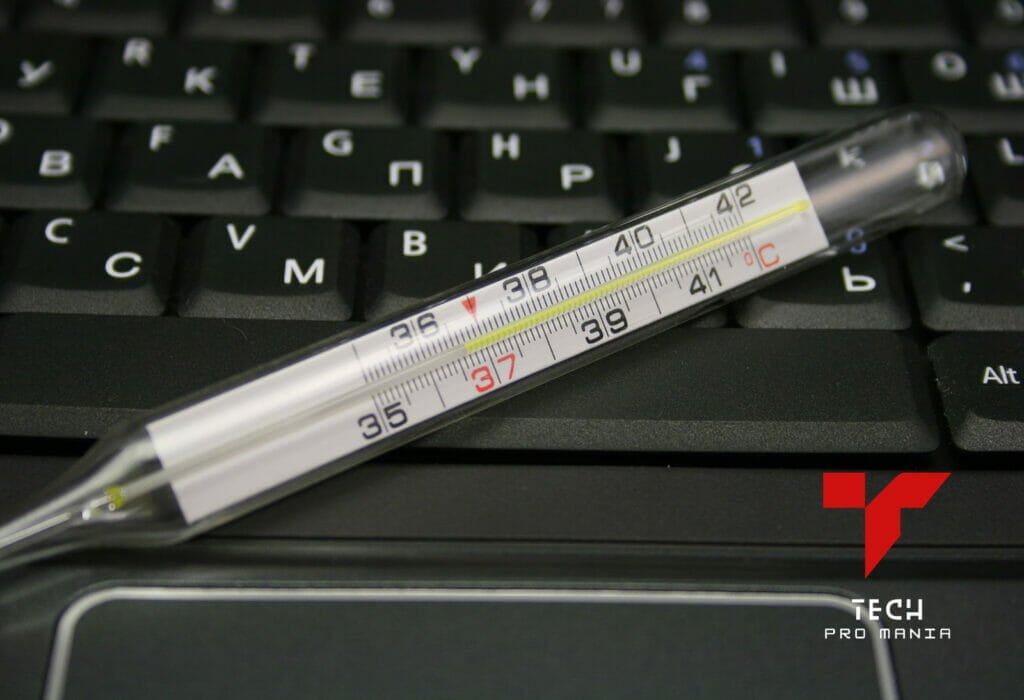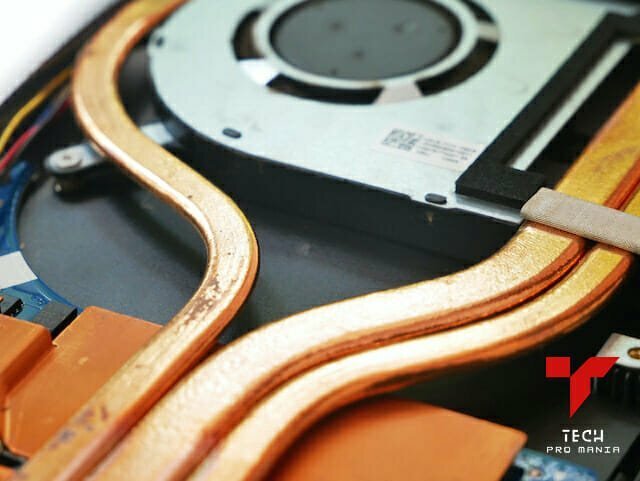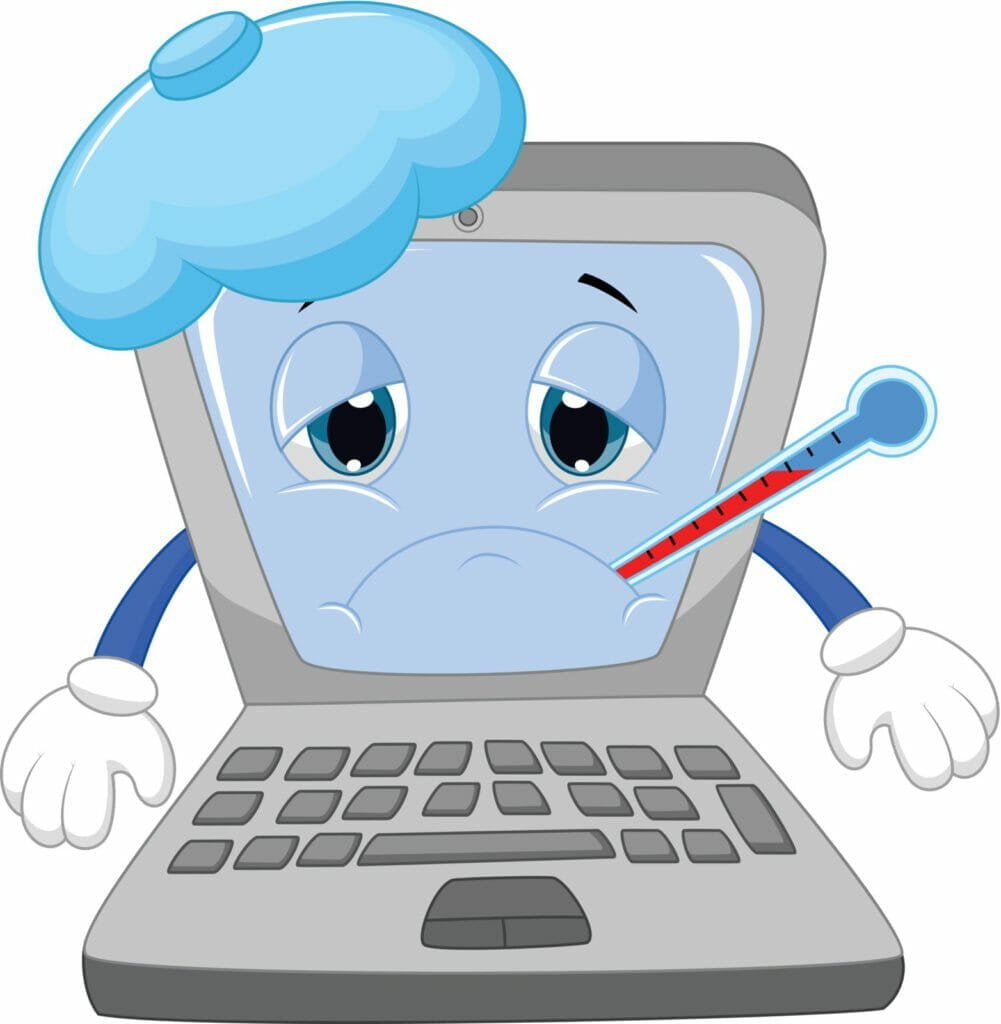If you’ve ever used a laptop in warm weather, you know how important it is to keep them cool. But what is the lowest temperature a laptop can handle? While most laptops are designed to operate in a wide range of temperatures, there are a few things to remember when using your laptop in colder weather. In this blog post, we’ll cover everything you need to know about using a laptop in cold weather, from the dangers of overheating to the best ways to keep your laptop cool.
Why Does Temperature Matter for Laptops?
Most laptops operate in a range of temperatures, with the lowest temperature around 0 degrees Celsius. Laptops that run at lower temperatures have longer battery life because they use less power. This is because batteries work better when cold, and the cells absorb more energy.

However, extreme temperatures can cause damage to a laptop if it is operated outside of its operating temperature range. For example, if a laptop is performed at a temperature above 25 degrees Celsius, the battery will be damaged and may not last as long.
Laptops perform better when kept cool using fans or air conditioning units. This is because heat causes electronic components to malfunction, resulting in decreased performance or even permanent damage to your laptop.
What Are the Dangers of a Laptop Overheating?
Laptops are essential for many people, but like any other electronic device, they can overheat. Overheating a laptop can have serious consequences, so it’s important to know how to prevent it from happening and what to do if it does.

Preventing Laptop Overheating:
You can do a few things to keep your laptop from overheating. First and foremost, make sure the device is kept cool. Keep the lid closed and avoid placing heavy objects on the laptop. If you need to use the laptop in an area with high heat, try using cooling pads or carrying around a portable fan.
If your laptop starts overheating, don’t wait! Immediately power down the device and remove all external devices (including USB drives). Once safely removed, restart your computer by pressing and holding the Power button until “Restart” appears onscreen. Finally, wipe off any spilled liquid or debris around the keyboard/trackpad area before powering your computer back up.
The Consequences Of Laptop Overheating:
If your laptop overheats due to an issue with its internal components (like a bad battery), there may be little you can do aside from taking it in for repairs or replacing it outright. However, suppose your laptop overheats due to accidental damage (like spilling coffee on it). In that case, minor repair work may be needed, such as cleaning out dust bunnies or removing loose screws. In either case, take care not to let this happen again – keeping your laptops cool will go a long way in avoiding these problems in the future!
How Can I Tell If My Laptop Is Overheating?
If your laptop is overheating, it may be due to a hardware issue. You can check the temperature of your laptop by using a built-in sensor or an external sensor. If either of these methods shows that your laptop’s temperature is above a certain threshold, it may be due to a hardware issue, and you should contact customer support.
If your laptop is overheating, you may need to use a cooling pad or take other measures to cool it down. For example, you could place your laptop on ice or cold water. Alternatively, try adjusting your computer settings so that it runs cooler.
If your laptop is still overheating even after trying these measures, another problem may arise. In this case, you’ll need to take apart your computer and check to see if something is blocking the heat from leaving the CPU or GPU. If so, you’ll need to replace that part before the computer can cool down properly.
How Can I Prevent My Laptop From Overheating?
Overheating is a common issue with laptops, and it can be frustrating. Luckily, there are a few things that you can do to prevent your laptop from overheating.
First, a laptop cooling pad can help keep your laptop cool. Laptop cooling pads are small pieces of fabric or rubber that attach to the bottom of your laptop. They work by absorbing heat from your laptop and usually come in packs of two or three.
Another way to keep your laptop cool is to avoid using it on soft surfaces. This includes things like pillows, blankets, and sofa cushions. This is because laptops tend to heat up more quickly on these types of surfaces than on hard surfaces.
Finally, take breaks when you’re using your computer for long periods. This will help reduce the amount of energy your CPU and GPU use, reducing the risk of overheating. And lastly, ensure that your laptop is clean and free of dust – this will also help prevent it from overheating.
What Should I Do If My Laptop Starts to Overheat?
If your laptop is starting to overheat, there are a few things that you can do to try and fix the issue. First, make sure that the laptop is clean. If there is any debris or dust on the computer, this will cause it to overheat and malfunction. In addition, make sure that there is proper ventilation around the laptop. For example, if you are using a laptop in an enclosed space, open up some windows so that air can flow freely in and out of the room. Additionally, try using the laptop in a cooler environment. This will help to reduce the amount of heat generated by the computer.
If these methods do not work, you may need to take the laptop in for repair. Laptop manufacturers usually have a warranty that covers repair or replacement. Therefore, if something is wrong with the computer’s hardware, they will usually be able to fix it without any problem. However, if the issue is with the software or firmware on the computer, they may be unable to help you. In this case, you would need to find a different laptop or PC manufacturer that offers repairs for laptops and computers.
Can a Laptop Be Used in Cold Weather?
Laptops can be used in cold weather if the temperature is above freezing. Some people have even used their laptops in temperatures as low as -20 degrees Fahrenheit without any problems. Keep in mind, however, that if the temperature is below freezing, it is recommended that you use a thermal pad or take other measures to keep the laptop warm.

In general, laptops work best when the temperature is around room temperature. If you plan on using your laptop in cold weather, keep it plugged into an outlet and open the vents. Additionally, put a thermal pad or another heat-transfer device between your laptop and its keyboard or case to help keep it warm. And lastly, if you are going to be working in cold weather for a long period of time, it is beneficial to bring a jacket or other extra layer of clothing with you so that you don’t get too cold.
To Conclude Bottom Line
It’s important to keep your laptop cool, regardless of the temperature. Overheating can damage your computer, so it’s essential to take measures to prevent it. If you are using your laptop in cold weather, keep it warm and use a thermal pad or another heat-transfer device if necessary. And finally, if you think your laptop might be overheating, don’t hesitate to take it in for repairs – it could save you a lot of money and hassle in the long run.
- How Long Does It Take To Reset A Laptop - July 16, 2023
- How To Change Keyboard Color On Msi Laptop - December 25, 2022
- How To Connect Ps5 To Laptop - December 25, 2022

